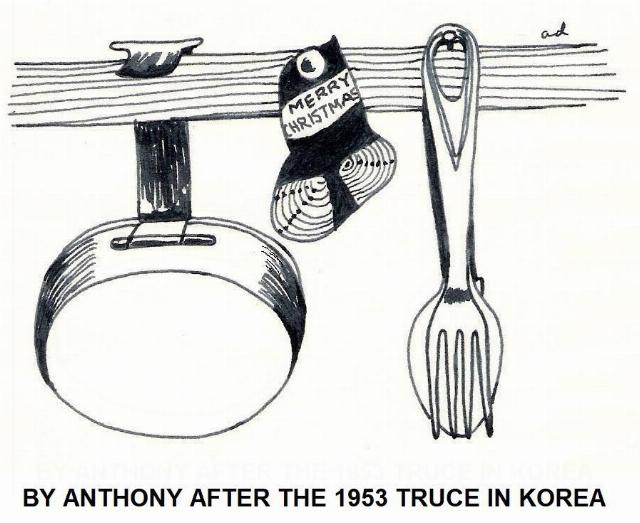We support our Publishers and Content Creators. You can view this story on their website by CLICKING HERE.
This is a true story.
It was reduced in length to a “thumbnail size” some time ago as an exercise in brevity.
Such extreme reduction of a story without blurring its essential character was, I think, good practice in limiting my usual writing to indispensable details, words and phrases. I chose this story, first for its first-hand look at what was open to one living in New York City before 1960, and second for its portrayal of an American who survived most of the 20th century and continues to write about it.
==========
A boy from Brooklyn, born when Frankenstein and Dracula made their screen debuts, was named after an uncle in Sicily that he never saw and would never meet. Anthony lived in a tenement flat during the Great Depression with two older brothers, mama and papa. Anthony was six before he saw his first Christmas tree. His first Christmas present was a toy Tommy gun that rat-a-tat-tatted and shot sparks.
A player piano in the parlor, from better times, drew out Anthony’s talent for music. An opera coach taught him to play, awarding him a medal of achievement at a student piano recital. Anthony also learned to play the pipe organ in his high school auditorium. The music teacher needed a double bass player for the orchestra and Anthony took lessons from bassists in Radio City Music Hall and the NBC Symphony.
His oldest brother was highly literate and articulate, and his father spouted reams of Italian poetry from memory. The serious young musician of the family had a way with words and pictures on paper. Anthony wrote mysterious little stories that reminded an English teacher of Edgar Allan Poe.
The budding author loved to grow things. He developed a green thumb watching and helping his father grow plants on the fire escape. When he was gravely ill before Easter, one year, his mother bought him a few potted flowering plants being sold across the street from a local greenhouse. It was an unprecedented extravagance, since mama always counted pennies to make ends meet. The boy recovered quickly with such love.
Anthony talked and played classical music with a school chum and painted murals on school walls with another. Later, a college friend introduced him to something new from England called “high fidelity.” Anthony had seen 78 rpm records turn to LPs, then 45s, then “stereo.” He saw records and film “replaced” with magnetic tape. He saw radio “replaced” with television, and saw black-and-white turn to color.
In midcentury Anthony was drafted into the Army, served in Korea, then became a computer programmer. Computers were initially clumsy giants that filled rooms with tons of hardware. The programmer-writer-musician loved advances in technology but considered progress as an end foolish and dangerous.
Anthony bit, chewed thoroughly, then spat out the Enlightenment and its spin-off socio-political theories and isms. They denied or rejected God, which went counter to his discoveries. To deny God is to deny self. To reject God is to reject life, a form of blindness that leads to radical error and suicide, spiritual if not physical. To him, Charles Darwin, Sigmund Freud, John Dewey, and other manipulators of the facts of life were to be pitied, not enshrined. So-called social “science” and social “engineering” were arrogant, pseudoscientific non-disciplines at odds with reality, human intelligence, and life itself. Judeo-Christian tenets rooted in the facts of life were ultimately more enlightening, more human, more liberating than social theories spun out of abstractions based on wish lists. Reason and science that lead instead of serve humans are misapplied.
Anthony married a girl from Scotland, had three children, and lived in New England thereafter. His beloved Sicilian parents died close to the age of 90. With growing disbelief and indignation, Anthony witnessed cradle misfits trash a wonderful culture by polluting young minds with puerile social theories.
Feeling like an alien in his own country, Anthony misses the depth and breadth of freedom he once enjoyed – and fought for – in an America that lost its marbles after mid-century. Happily his love of writing never left him.
==========

Anthony J. DeBlasi is a veteran and longtime defender of Western Culture.
Image: Anthony J. DeBlasi // by permission

 Conservative
Conservative  Search
Search Trending
Trending Current News
Current News 


